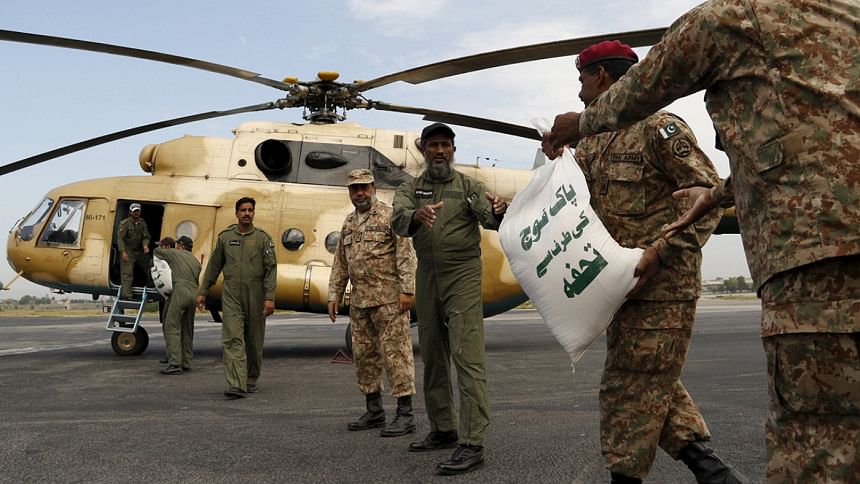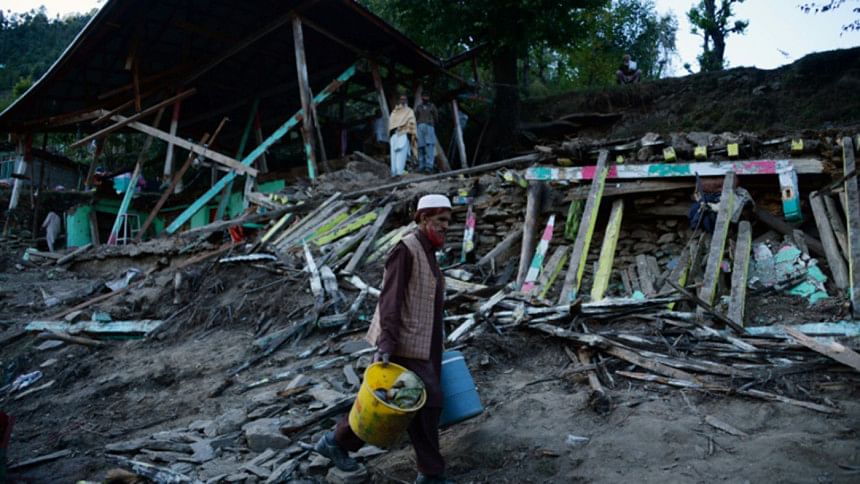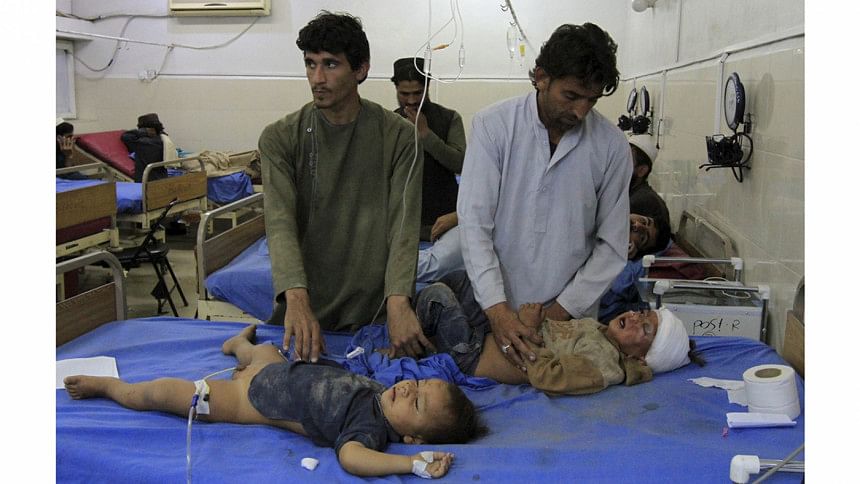Relief agencies battle to reach Afghan-Pakistan quake victims

Relief agencies were battling to reach cold and hungry survivors of a devastating earthquake that has killed more than 360 people in Pakistan and Afghanistan, with entire communities still cut off in the mountainous region.
Desperate victims appealed for aid after Monday's 7.5 magnitude quake ripped through the region, destroying thousands of homes, triggering landslides and stampedes, and knocking out communication lines.
Rescuers and the Pakistan military are now in a race against time to reach victims stranded in remote regions before the freezing weather conditions claim more lives.

"No one came to help us. We are sitting in open area. There was rain yesterday and no one came to help us," said Jamil Khan, a 24-year-old quake victim in Shangla, one of the worst hit districts of Pakistan's northwestern Khyber Pakhtunkhwa province.
Aid workers also fear the unstable security situation in quake-stricken areas in Afghanistan, many of which are effectively controlled by the Taliban, could hamper relief efforts despite a pledge from the insurgents they would help deliver aid.
Pakistan's Prime Minister Nawaz Sharif on Tuesday pledged compensation for those whose homes have been destroyed during a trip to Khyber Pakhtunkhwa province, which has seen the bulk of the casualties so far.
Pakistan's confirmed death toll stands at 248 people with more than 1,600 injured, but authorities fear the number could spike with communication from some regions, such as the district of Kohistan, still cut off.
The military has been leading Pakistan's rescue efforts, sending in medical teams, tents and rations to affected areas and evacuating some people by helicopter.

But in more remote areas residents have had to fend for themselves, with children and the elderly helping to dig through piles of rubble for survivors and locals appealing for blankets, warm clothes and food to survive.
"We lost everything. We could not save anything," said another Shangla resident, 60-year-old Hakim Khan, adding that the only thing they had been able to retrieve from the rubble was the body of a dead boy.
- 'Consolation and strength' -
Afghan officials said at least 115 people were confirmed dead and hundreds more injured, with casualties reported from around half a dozen of the country's 34 provinces, and more than 7,600 homes reported damaged.
The US is among several countries that have offered to provide humanitarian assistance to Afghanistan, and Chinese state media said on Wednesday Beijing stood ready to help both countries if needed.
"What is most needed at this stage is medical assistance to the injured, medical equipments and shelter for the affected populations," said Kjersti Haraldseide, acting country director for Afghanistan for the Norwegian Refugee Council agency.
Antoine Sagot-Priez, country head of French aid agency Premiere Urgence Internationale, said they had already seen a "large influx of casualties" at one of their hospitals in the badly hit Afghan province of Kunar.

The World Health Organization said Tuesday it has distributed medical supplies to help thousands of people in the worst-hit parts of Afghanistan, and more trauma kits for 1,200 patients will be dispatched in the coming days.
The quake was centred near Jurm in northeast Afghanistan, 250 kilometres (160 miles) from the capital Kabul and at a depth of 213.5 kilometres, the US Geological Survey said.
Afghanistan is frequently hit by earthquakes, as it lies near the junction of the Eurasian and Indian tectonic plates. Monday's quake came six months after a huge earthquake in Nepal and an aftershock killed almost 9,000 people.
Large swathes of Badakhshan, the remote province where the epicentre is located, and other quake-stricken areas are effectively controlled by the Taliban, which Western charities said is hindering access to victims.
The militants Tuesday urged aid organisations not to hold back in delivering emergency relief and vowed their fighters would provide "complete help" in the affected areas.
On Tuesday Pope Francis offered prayers for the dead and missing, invoking the "divine blessings of consolation and strength" for aid workers trying to help the victims.

 For all latest news, follow The Daily Star's Google News channel.
For all latest news, follow The Daily Star's Google News channel. 



Comments